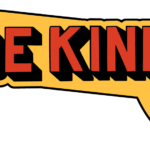“Too often we underestimate the power of a smile, a kind word, a listening ear, an honest compliment, or the smallest act of caring, all of which have the potential to turn a life around.” Leo Buscaglia
Here she goes again, banging the kindness drum. The sparkly unicorn, bells and whistles, rainbows and sparkles world of Emma. Her shiny flute playing its positivity tune. The colourful tambourine chiming be kind to yourself and have a little humility, encouraging pausing to explore the benefits of all this softer stuff…
Not another kindness post, surely?! Especially if you’re reading this on LinkedIn. This is not a place for such claptrap; this is a professional network!
Why are we talking about kindness?
To some, talking about kindness or being gentle with ourselves can be a little cringy, possibly even cheesy. Motivational mumbo jumbo. And almost always a nice to have, an add on, an extra. Not when we have seriously impactful stuff to discuss. Stuff that makes a difference to the bottom line. The numbers. Growth, sales, income. New processes. This is the stuff that we need to be talking about.
Kindness helps us achieve our goals
Well, hold your horses. Those that know me understand I’m not all sweetness and light, living off positivity sandwiches sprinkled with glitter. I’m very driven, ambitious, and bold. So, let’s completely rubbish the myth that ‘nice people don’t win’, as don’t get me started on my competitive streak! I look to excel at every opportunity. Achievement is instilled in me. Whilst kindness is an innate value and trait; it also supports me to reach my goals. To achieve that all important bottom-line stuff…
Kindness is a strength, not a weakness

I’ve lost count of the times I’ve been told, ‘you’re too kind, Emma’ or ‘you care too much, Emma’. The rolling of eyes (we see you!) as I share a perspective that’s perceived as too soft. No place for that when we need to get stuff done. Kindness is sometimes seen as a demonstration of indecision. (They really don’t know my ‘D style’ dominance preference which has been witnessed by many, sometimes even called scary!) Emma scary? Surely not! I digress…
If we look at the origin of the word kindness and its meaning, it states, ‘deliberately doing good; courteous, friendly and grateful.’ So, I’m comfortable with being called too kind! It’s a strength not a weakness!
Why is kindness often considered soft and fluffy, even a limitation in the workplace?
There have been several studies, lots of research and plenty of ongoing dialogue. Each of the points I am about to list would be worthy of a whole article on their own. Is it because we have been wanting to bring up ‘strong’ children? Is it the gender stereotypes that exist? The connotations associated with caregiving? Let’s go primeval and explore whether it’s down to survival of the fittest as cave people, with no time for altruistic behaviours?
The last point is an interesting one, as The Association for Psychological Science, found that compassion may well be encoded into the genetics of humans and animals and that it may be an intrinsic element for survival. You mean kindness helps us stay alive? So, it is a wondrous strength after all! Let’s look at this from a professional viewpoint. What’s the evidence that kindness is not a limitation in the workplace?
Kindness contributes to a successful workplace culture 
Being kind creates a ripple effect. It impacts our general level of positivity, boosts our mood and it’s contagious, as the good feelings it promotes make us more likely to ‘pay it forward’. Care and kindness heighten our creativity, helping build stronger internal and external relationships. It supports and increases productivity, enhancing team collaboration, as well as overall wellbeing. Research shows kindness also influences retention and engagement and supports a more inclusive culture. In fact, every significant bottom-line measure is positively enhanced when we foster a caring environment.
Kindness is a key skill to support organisational change and growth
Being caring and kind doesn’t mean we don’t have difficult conversations or create an environment that thrives on constructive challenge; quite the contrary, we do that because we care so much! I’m determined, passionate and ambitious. I’m also courteous, sensitive and try to be as kind as I can. These traits aren’t opposing forces. Instead, they are wonderfully intertwined!
We need to make time for kindness 
Let’s be gentle with ourselves on this. Our culture of digital, fast paced communication means kindness needs to be a more conscious act. We are often rushing, writing quick messages, losing the kindness sprinkle. I’ve had the indirect feedback many times when, after firing off Monday emails as I’m in the zone, the reply returns… ‘Good morning, Emma, I hope you had a great weekend….’ Reading over my direct message I realise there wasn’t an ounce of human in it! So, we do need to slow down a little to relish in the kindness superpower.
Let’s be a little kinder in the workplace
Whilst I welcome every one of you into my world of sunbeams and positivity, I would like to finish by confirming that I don’t want anyone to feel they must be kind. This is about being a little more conscious a little bit more of the time. I would love for us to continue the discussion about identifying the opportunities to be kinder to others and to ourselves. And whilst it is challenging to measure kindness on the weekly dashboards, it is not immeasurable; it is just a little trickier. Let’s think about those benefits, and let’s not push kindness to the nice-to-have list.
Until next time… kindness really does matter.
By Emma Lloyd, Director of Global Learning & Development.
















